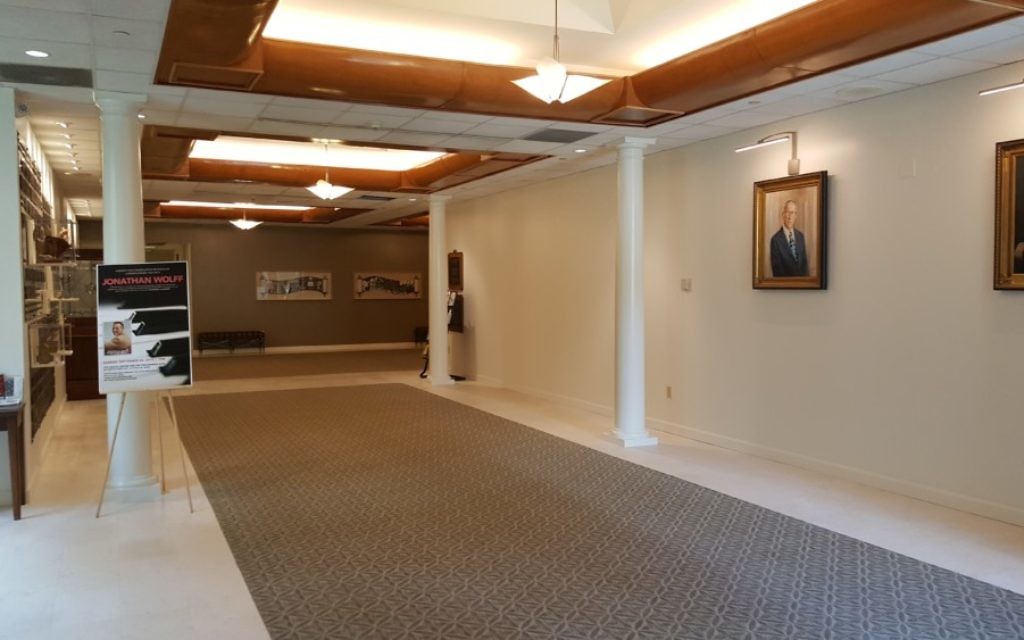For Now, OVS Stays Off Egalitarian Path
Or VeShalom failed to amend its constitution to hire a rabbi for egalitarian services in a vote Sunday, March 19.
Congregation Or VeShalom has stood as Atlanta’s traditional Sephardic synagogue for more than a century, and that legacy will continue after the congregation failed to amend its constitution to hire a rabbi for egalitarian services in a vote Sunday, March 19.
An ad hoc committee composed of OVS President Richard Maslia, Robert Arogeti and Lisa Galanti has convened to evaluate the next course of action.
“After the vote we received a lot of questions and scheduled a board meeting to explore all our options. I think the search committee is still empowered and wants to re-examine what direction we would like to move forward,” Arogeti said.
Get The AJT Newsletter by email and never miss our top stories Free Sign Up
To increase Jewish engagement, OVS proposed launching a second religious pathway that would welcome guests from various backgrounds. The congregation had begun advertising for an egalitarian rabbi.
“A majority of our members are seeking something different than what OVS is currently offering alongside Sephardic practices,” Galanti said.
A vote on the proposal received 62 percent support, but that was short of the required two-thirds majority.
Galanti said the congregation vote showed that most members favor two pathways, but “we want to make sure we stick to the bylaws for something this important and have at least 67 percent majority vote.”
What happens next could be crucial in determining whether OVS can engage new members and branch out.
“We are still gathering feedback from participants and asking why they were for or against the new pathway and what they would like to see moving forward,” Arogeti said.
Although the ad hoc committee still hopes for action to reinvigorate the religious place of OVS in the Jewish community, many members are content with traditional Sephardic services.
“A few people were uncertain as to what was going on. They were interested in keeping traditional values and open to egalitarian, but we also face challenges in terms of demographics,” Arogeti said. “Most of the population has shifted, particularly in Brookhaven, and statistics tell us that there are about 3,000 unaffiliated Jews in the area. We want to take advantage of that by meeting the needs of the neighborhood, especially as it continues to spread out. More and more individuals want to go attend synagogues closer to their home, and we need to engage people who are already in our back yard.”
Galanti said she thinks the second pathway was of interest to OVS because of members who grew up at OVS but engaged with the wider community through day school or other involvement. “They are now seeking to welcome new members which cross various denominations.”
She said the congregation’s rabbinic search committee is composed entirely of people under age 40. “We have an individual who is in her late 30s and has three children, and we also have a member who is 28 and single. Each is interested in discovering and building new relationships within the community.”
The Sephardic roots of OVS have maintained its place in Jewish Atlanta for decades, but Arogeti said members are open to egalitarian as well as traditional services. “The traditional messages are different than what the next gen wants. They do not seek a wall separating traditional roles between men and women but rather females reading separate portions of the Torah, which occurred at OVS during Rosh Hashanah.”
Arogeti said OVS is trying to reach a consensus while causing as little disruption as possible “in a unique situation.”
He said several people at the congregational meeting asked why OVS needed a constitutional amendment instead of moving quickly to pursue the second track as an experiment. But the board thought the issue was too important to proceed without changing the constitution.
“We now need to see how we can get that vote higher and what needs to be done,” Maslia said.





comments